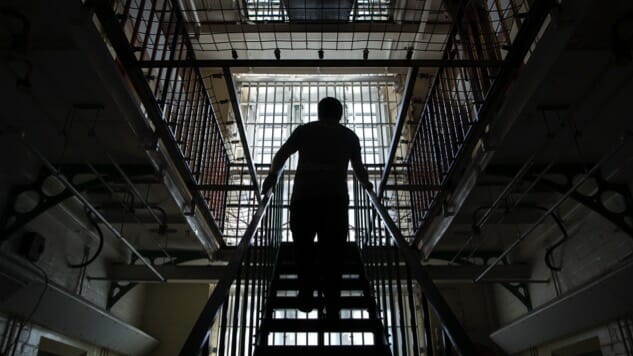Terror in the Homeland: The Supreme Court, “See Something, Say Something,” and the Specter of 9/11
Photo by Dan Kitwood
Reminders of 9/11 are scattered around our country. Coral Springs, my hometown, displays a piece of twisted steel from the World Trade Center. These objects identify a monumental affront to our national consciousness. Insulated by oceans, protected by powerful armies, we never thought it would happen here. Instead, we had to confront a reality where we are vulnerable.
Following 9/11, the country was told that we the citizens must defend America. We rightly praised those who apprehended the would-be shoe bomber Richard Reid. Similarly, in many of our cities, “See Something, Say Something” campaigns calling upon people to report suspicious behavior remain ubiquitous on billboards, subways, and trains.
Interestingly enough, another vestige of that not-so-far-gone era came before the Supreme Court on Jan. 18 of this year. While it had little fanfare in light of the Presidential inauguration, Ziglar v. Abbasi presents troubling questions for our future under administrations with ever growing police powers. Ziglar will decide whether federal officials, such as then Attorney General John Ashcroft, can be held personally liable for violating non-citizens’ constitutional rights in the wake of 9/11. The rampant torture and abuses at Guantanamo Bay are widely acknowledged but its analogues on the homeland have been mostly ignored. Ziglar confronts our sordid history of abuses head-on and should make us question more than just legal minutiae but our values surrounding hyper vigilance as well.
Background on Ziglar
While the legal issues surrounding Ziglar are complicated and multifaceted, the facts behind the case are simple and terrifying. After 9/11, non-citizen Muslims and Arabs in the New York City metropolitan area were arrested for immigration violations and detained in a variety of local prisons including the Metropolitan Detention Center (MDC) in Brooklyn. The lack of evidence justifying these detentions shocks the conscience.
These otherwise innocent people were held because concerned citizens and federal agencies acted out of fear. For example, one wrongfully imprisoned person was an Egyptian medical student who came to the United States for vacation. He was arrested after a tip came in that Arabs at his address rented out a post-office box. His detention lasted four months. An original plaintiff in the case “came to the FBI’s attention when his landlord called the FBI’s 9/11 hotline to report that she ‘rented an apartment in her home to several Middle Eastern men, and she would feel awful if her tenants were involved in terrorism and she didn’t call.’” Another man still does not know the reason for his detention.
Despite the questionable justification, the individuals were placed in an Administrative Maximum Special Housing Unit (SHU) at MDC where they suffered exposure to the harshest conditions within the federal prison system. These conditions included 23-to-24 hour-a-day lockdowns in solitary confinement, repetitive strip searches, sleep deprivation, and physical abuse. The detainees, never charged and without any tangible connection to terrorist activities, were imprisoned subject to a “Hold Until Cleared; policy where officials held them indefinitely until they were “cleared” of all accusations. A “Hold Until Cleared” policy is a potentially unconstitutional inversion of our country’s righteous belief in a presumption of innocence.
What occurred at MDC is not speculation. The Office of the Inspector General (OIG) for the Department of Justice described in explicit detail the conditions the individuals were exposed to in the SHU. For example, the OIG found that cells were illuminated 24 hours a day. MDC and the warden claimed that they could not reduce the lighting but the OIG determined this to be untrue. Twenty-four hour a day lighting lasted “until at least late February 2002” or mid-March 2002. The OIG also found that MDC interfered with detainees’ abilities to possess Korans in their cells and make legal calls. MDC even failed to release detainees after the FBI cleared them of all accusations of terrorism.
It would be easy, albeit incorrect, to dismiss those complaints as petty. Maybe some people just think that prison is a rough place and being denied access to a lawyer or having the lights permanently on is the cost of being there. Thankfully, the OIG also described a pattern of horrific physical and verbal violence. Detainees were slammed into concrete walls and threatened with having their necks broken. Officers told them that but for security cameras, they would have “bashed” in a detainee’s face. Staff also bent their arms, hands, wrists, and fingers, causing severe pain and fear. In fact, MDC staff confirmed individuals were treated “pretty roughly” and that they were not “using kid gloves” with them. Some staff tried to “prove that America was superior” by being overly aggressive and taunted the individuals by calling them “Bin Laden, Junior.” This continued in public areas where the detainees were called racial slurs and terrorists so that members of the general prison population would associate them with the 9/11 attacks.
These people were never convicted of terrorism, charged with terrorism, or even associated with terrorism. They were held and treated harshly based on fleeting and shoddy accusations by concerned citizens. While Ziglar will answer a litany of important legal questions, it represents something much greater than that. It demonstrates just how nationalism, suspicion, and aggression run amok can endanger all of us.
The Conditions to Repeat the Horrors in Ziglar are Present Today